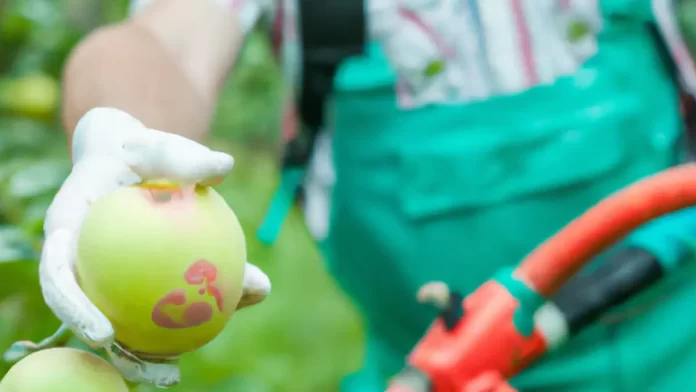Union Minister of Agriculture & Farmers Welfare, Shri Narendra Singh Tomar on Friday informed Rajya Sabha today about banned pesticides in India.
The government constituted an Expert Committee under the chairmanship of Dr. Anupam Verma to review 66 pesticides which are banned/restricted in other countries but continued to be registered for use in India. Government of India, after considering the recommendations of the
In October 2016 government had banned 12 pesticides and ordered phasing out of 6 pesticides by 2020.
One pesticide (Endosulfan) was not reviewed being under consideration of Supreme Court but was later banned by the Hon’ble Court. One Pesticide (Fenitrothion) was already banned for use in agriculture.
Government decision on banning the pesticides was based on recommendations of the Anupam Verma constituted to review 66 pesticides which are banned/restricted in other countries but continued to be registered for use in India.
On receipt of new studies registered pesticides are reviewed with regard to their safety and efficacy.
The review is done by constituting expert committees. Based on the recommendations of such expert committees and after due consultation with Registration Committee, the Ministry of Agriculture and Farmers Welfare has so far banned or phased out 46 pesticides and 4 pesticide formulations for import, manufacture or use in the country.
In addition, 8 pesticide registrations have been withdrawn and 9 pesticides have been placed under restricted use (see Annexure).
The government is promoting use of biopesticides, which are generally safer than chemical pesticides.
For this, the approved pesticides on various crops are displayed in public domain on the official website of the Directorate of Plant Protection Quarantine & Storage.
What are Biopesticides?
Biopesticides are types of pesticides that are derived from natural materials, such as plants, bacteria, and fungi.
They are considered a type of “green” pesticide because they are less toxic to the environment and non-target species, such as beneficial insects, than conventional synthetic pesticides.
Biopesticides work by disrupting the reproductive or digestive systems of pests, or by producing toxic compounds that are specific to certain pests.
Biopesticides are used to control pests in agriculture, horticulture, and forestry. They are also used in residential, industrial, and recreational settings to control pests such as mosquitoes and flies.
Some common examples of biopesticides include Bacillus thuringiensis (BT), which is used to control caterpillar pests in crops, and neem oil, which is used as an insecticide and fungicide.
Biopesticides are seen as a sustainable alternative to synthetic pesticides and are becoming increasingly popular as concern grows over the environmental and health impacts of synthetic pesticides.
However, biopesticides are often less effective and more expensive than synthetic pesticides and their use can also have some unintended consequences, such as the development of pesticide resistance in pests
